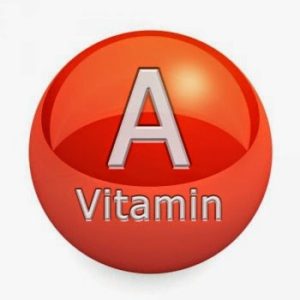Eating a salubrious and nutrient-dense diet is paramount, whether your aim is to shed pounds, augment muscle mass, or sustain your existing physique. The burgeoning health industry has elucidated the essence of genuine wellness, which transcends regular exercise and meticulous calorie monitoring. A harmonious diet is indispensable for preserving a healthy body, tailored to your individual needs. This encompasses the intake of adequate proteins, carbohydrates, calories, and dietary fats, alongside a plethora of vitamins and minerals, notably Vitamin A. Upholding robust health not only sustains your vigor but also fortifies your immune system, enabling it to combat maladies and infections more effectively, and promotes optimal bodily functions.
What is Vitamin A?
Vitamin A, a crucial fat-soluble nutrient, warrants inclusion in your quotidian diet, being sequestered in the body’s adipose cells. Renowned for its immunological enhancement properties, it also ensures ocular health and mucous membrane development. Moreover, it is pivotal for osseous growth, making its intake imperative for the youth. Additionally, Vitamin A is beneficial for the formation of healthy dermis, dentition, and both skeletal and soft tissues. Retinal, a variant of Vitamin A, plays a vital role in pigment production within the retina.
Natural sources abound with Vitamin A. Preformed Vitamin A, or retinal, is predominantly found in animal tissues such as fish, meat, poultry, and dairy. Pro-vitamin A, known as carotene, is converted into Vitamin A upon consumption of certain flora, including yellow-orange and dark green produce like spinach, sweet potatoes, and turnips. Carrots are particularly rich in Vitamin A, delivering over 600% of the daily recommended intake. Should natural sources fall short, Vitamin A supplements, typically in pill form, can bridge the gap.
Side Effects of Vitamin A
Deficiency in Vitamin A can precipitate ocular issues such as night blindness and corneal damage, along with hyperkeratosis, characterized by xerotic, scaly skin. Deficits can also heighten susceptibility to infections. Conversely, excessive Vitamin A intake can induce nausea, headaches, vertigo, blurred vision, and impaired muscular coordination. Overconsumption can lead to teratogenic effects in infants, poisoning, hepatic abnormalities, and reduced bone mineral density, potentially resulting in osteoporosis.
Vitamin A’s Role in Bodybuilding
Vitamins and minerals, including Vitamin A, are essential for anabolic processes, while exercise induces catabolic processes. Bodybuilders, due to the strenuous nature of their regimen, must ensure an ample intake of critical vitamins and minerals like Vitamin A to counteract catabolic effects. Intensive muscular exertion leads to molecular breakdown to release energy and oxygen, which Vitamin A utilizes to form cellular structures.
However, many bodybuilders’ dietary plans focus on other nutrients, resulting in lower Vitamin A intake. Intense physical activity further hampers Vitamin A absorption, compounding this deficiency. Given that muscle growth necessitates a healthy intake of vitamins and minerals, bodybuilders must not deprioritize Vitamin A. This vitamin also aids in the repair and growth of tissues, essential due to the significant stress imposed by bodybuilding. It enhances the immune system by optimizing white blood cell function, thus improving infection resistance.
Avoiding Vitamin A Deficiency
Maintaining a robust physique and adequate Vitamin A levels entails avoiding certain detrimental habits. Excessive alcohol consumption, smoking, and residing in polluted environments undermine Vitamin A levels. Conditions like diabetes, low-fat diets, and injuries or illnesses also pose risks to Vitamin A status. For women, pregnancy or lactation can deplete Vitamin A levels. While some risk factors are unavoidable, such as illness, injury, diabetes, and pregnancy, it is crucial to do everything possible to maintain sufficient Vitamin A levels. Bodybuilders, already at risk of inadequate Vitamin A consumption, should pay meticulous attention to their daily intake.
In essence, ensuring an adequate intake of Vitamin A is integral for overall health, particularly for bodybuilders whose intensive physical activity demands higher nutrient levels to support anabolic processes, immune function, and tissue repair.
Adopting a salutary lifestyle necessitates the ingestion of a well-rounded nutritional regimen and consistent physical exertion. An equilibrated diet encompasses the intake of the prescribed daily quantities of diverse alimentary classifications. These edicts further encompass essential micronutrients. Vitamin A, a pivotal lipophilic vitamin, harbors a plethora of advantageous physiological impacts.








